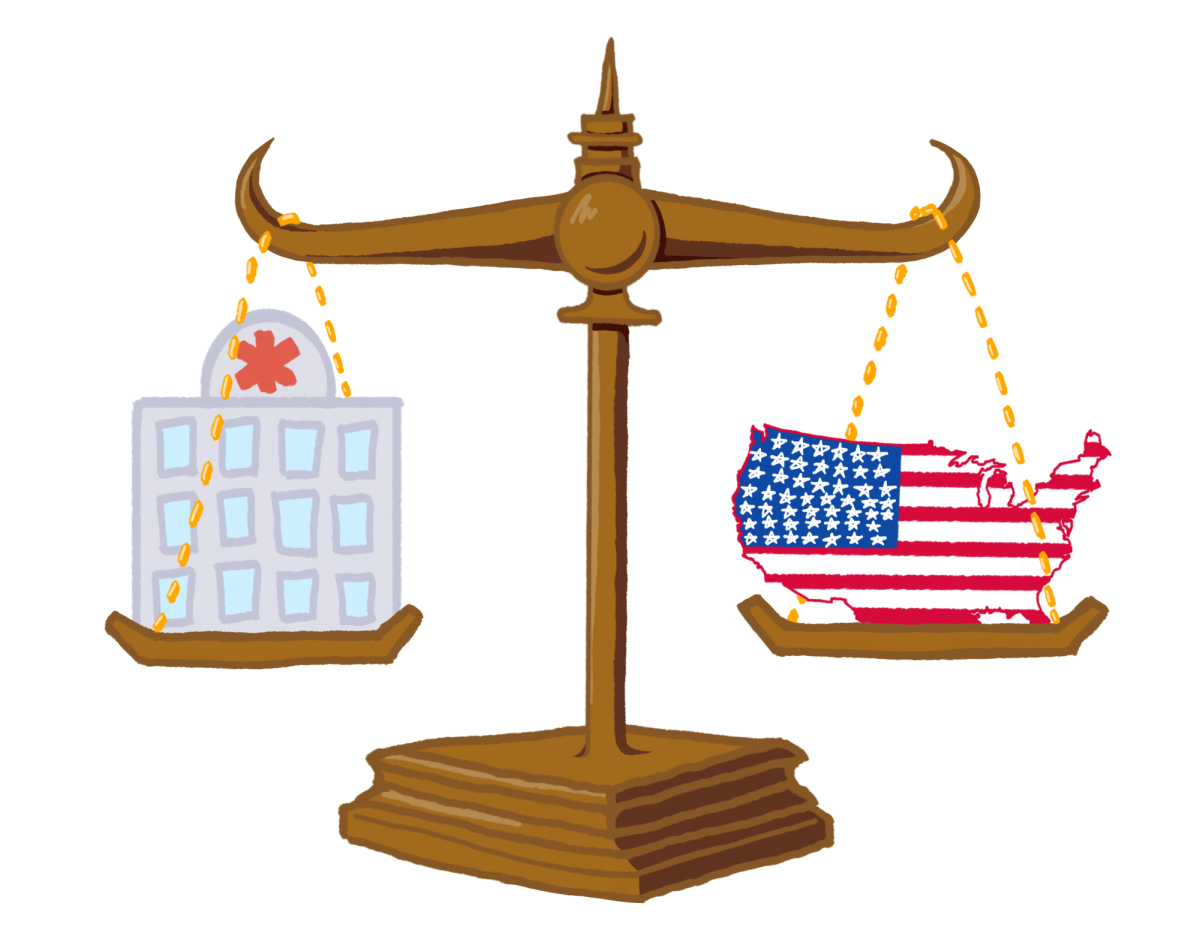The United States Government provides multiple types of healthcare. There is Tricare, which is provided by the Department of Defense for enlisted personnel, Medicare which is for retired citizens and is provided jointly by the states and federal government and finally, there is Medicaid, which is a similar program to Medicare except it is for low-income, disabled and minor citizens. The arrangement in which our public healthcare system works is more exclusionary than beneficial.
Public healthcare in the U.S. was first conceived by President Lyndon B. Johnson under the Great Society program on July 30, 1965. Before then, the concept of public healthcare had not existed in the U.S. In 2022, Medicare and Medicaid both separately covered 18% of the population, meanwhile private insurance covered a whopping 54.5%. One issue of Medicare/Medicaid is that states may choose to provide additional services such as home and community-based services and dental care. This makes the idea of a Canadian-like healthcare system more difficult to implement.
In Canada, which employs a similar system, healthcare is provided solely by the provincial governments and the federal government is relatively uninvolved. The differences that set us apart, however, are that in Canada your provincially-provided healthcare, referred to as a “health insurance card,” still works in other provinces. In comparison, if people travel from New York to Texas, and they have Medicaid or Medicare, they are not covered. Private insurance can cover people depending upon the plan chosen. Canada is not all perfect though, as many provinces refuse to treat people holding health insurance cards from Quebec due to the refusal to cover any rates other than their own.
One idea that multiple countries use, including the National Health Service (NHS) in the United Kingdom, is fully-funded public healthcare. This concept is referred to as the single-payer system because only one person or group pays for the healthcare. The National Health Care for the Homeless Council describes it best, saying that, “single payer is simply a streamlined financing mechanism where one entity administers the health care funding and payments.” In the UK, this consists of paying the National Insurance Tax, which is essentially the yearly bill for healthcare except it is based on your income level. Canada has used this system since 1984 with the enactment of the Canada Health Act. In recent years, the U.S. has introduced a concept referred to as Medicare for All, which is a single-payer version of Medicare, however, it is not a mandatory concept to adopt.
Both federally-provided and state-provided healthcare have their benefits and drawbacks, but state-provided healthcare is better for a litany of reasons. The first reason would be the political climate, which in recent years has gotten ever more heated, especially when incidents such as the repeal of Roe v. Wade occur. Letting the federal government control healthcare would allow it to be under the control of the ruling party, which is not ideal. Instead, having healthcare controlled by the states means that while you may have your bad apples, not everybody is affected. It also allows the federal government to have certain oversight to ensure no discrimination or illegal practices are going on. For the most part, that is our current system, however, it needs work.
That leads to the second reason, which is that healthcare is controlled by the state because the Constitution never expressly stated that Congress or the federal government had a right to manage healthcare. Violating the Constitution to have a fully federally-controlled health system will almost certainly be taken down by the Supreme Court. Finally, federally-controlled healthcare would violate the exact purpose of why America declared independence, which was to limit the control of the Empire on us as citizens. When the Townshend Acts were ratified, the colonists were worried about the Crown paying the salaries of their people directly. They worried about the influence and control that it could give them.
With that said, not much reform has to happen. The reform we need in America is for our own version of the Canadian Reciprocal Medical Billing Agreement, which is the voluntary agreement that all provinces, except Quebec, entered into so that health insurance would work across provinces. That could look like a lot of things, from a federal law to voluntary cooperation and agreement. That does lead to the final point which is harmonization. Should the reform we need ever come into play, harmonization of health insurance benefits — maybe only for traveling for instance — and the limited international coverage that Canadians get would be helpful towards lessening bureaucracy and financial burden.
American healthcare is better suited under state control due to the vast landscape of political instability in the highest reaches of government. Better forms of healthcare, and even a better version of our own, exist everywhere and we need to take a page out of those books and improve our health situation.












Lawrence M Lahnan • Mar 13, 2024 at 6:45 am
There is much more that is needed to make healthcare more affordable and accessible. There are a myriad of items/systems/etc that need changed and much of it is govt rules/regs….I can educate you on all the concerns, been healthcare consultant since 1978, if interested send me email
Anthony Chiurco MD • Mar 12, 2024 at 12:25 pm
Profiteering by the Health Insurance Industry has destroyed American Healthcare, precipitated the demise of private medical practice, and caused financial disruption for families with excessive premiums necessitating purchase of high deductible policies. The NEJM reported it is not cost effective to enter the practice of Pediatrics or Family Medicine because of low reimbursement in those specialties. WHY? Ten years ago United Health stock traded at $10/share. Today $540/share. AND THAT IS WHAT’S WRONG WITH US HEALTHCARE!!!
Anthony Alfred Chiurco MD
Lisa • Mar 12, 2024 at 6:22 am
Medicare is covered when you travel to other states.